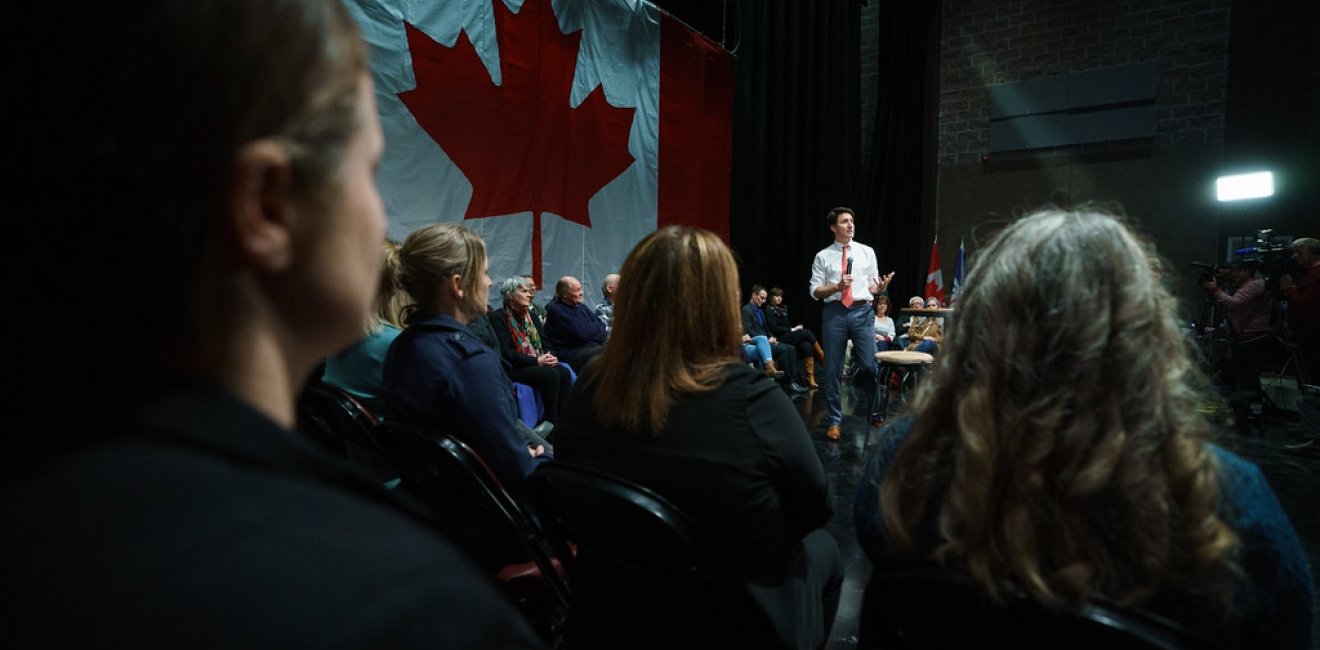On January 6, 2025, Canadian Prime Minister Justin Trudeau announced his intention to resign as Liberal Party leader as soon as the party is able to choose a new leader. In Canada’s parliamentary system, the leader of the party with the largest number of seats in the House of Commons becomes the prime minister.
Trudeau has also asked for and received a prorogation of Parliament until March 24. The decision to prorogue is made by the Governor General Mary Simon, who is the representative of King Charles III, who is King of Canada as well as the United Kingdom. Prorogation ends a Parliamentary session, and while prorogued, no parliamentary committees meet and all legislation that is in process will have to be reintroduced. But no confidence votes can be introduced until Parliament is back in session. During this period, Trudeau remains the prime minister with broad powers, including the ability to implement any statutory authority previously granted by Parliament, so government services and ability to act will continue. The current cabinet ministers and civil servants continue in their jobs as normal.
The Liberal Party could replace Trudeau before March 24. The process is governed by party rules. The next Liberal leader will serve as prime minister until October 20, 2025, the fixed date for the next federal general election.
When Parliament returns, the new government will present a Speech from the Throne (setting the government’s agenda, required at the start of a new session of Parliament) and will follow this with a federal budget in April. The Liberals control 153 of the 338 seats in the House of Commons, a plurality but not a majority. Trudeau is resigning his seat, which could reduce the Liberals to 152 seats. This means that the opposition parties could use the votes on the Throne Speech and the budget as confidence motions and force an election.
In the past, Trudeau has managed with a minority of seats in the House of Commons because the opposition parties were not ready for an election, however the current government, elected in 2021, is the longest-lasting minority government in Canadian history, meaning that the opposition, particularly the Conservatives led by Pierre Poilievre, and well-funded and ready for an election. That makes the political situation in Canada particularly unstable, and the timing of Trudeau’s resignation will create momentum for his Liberal Party to replace him quickly and for the opposition to force ana election if they can before October.
To recap, in the next 12 months, Trudeau will be replaced as leader of the Liberal Party and as prime minister; an election will determine party standings in the House of Commons; and the party leader of the party with the most seats after the 2025 election will become prime minister. With potentially three PMs in one year, 2025 will be a year of unusual political volatility in Canada.
For the United States, there are several questions that Trudeau’s resignation poses, among the most important being:
- National Security: Justin Trudeau visited with President-elect Trump at Mar-a-Lago on November 30 and pledged to increase border security and efforts to stop fentanyl and human trafficking on the US northern border to avoid a 25 percent tariff on Canadian exports to the United States. At the NATO summit in July 2024 Trudeau promised to increase Canadian defense spending to 2 percent of GDP by 2032, but did not announce a plan to reach this goal. Will Canada honor these promises under a future leader?
- International Relations: Canada hosts the Group of Seven leaders’ summit in Alberta in June, for which ministerial meetings have been awaiting US Senate confirmation of US cabinet members. How long until we know who will represent Canada? Meanwhile, Canada has been working with the United States to support Ukraine after the Russian invasion and conducting freedom of navigation patrols with the US Navy in the South China Sea. Will the next prime minister support these missions? And will the next Canadian government be able to engage in Haiti and other Latin American crises from Cuba to Venezuela?
- Trade: The United States Mexico Canada agreement that replaced NAFTA is up for review and even possibly new negotiations by 2026. Trudeau followed Ontario Premier Doug Ford and Alberta Premier Daniele Smith in suggesting publicly that since the United States and Canada are aligned on Chinese trade and investment and Mexico is not, it might be better to negotiate a new trade deal between the United States and Canada and leave Mexico out. And the three counties are co-hosting the FIFA World Cup of soccer in 2026. What will the next Canadian government position be on North American arrangements?
- Energy: Canada is the United States largest foreign energy supplier, delivering hydroelectricity and fuels such as oil, gas, hydrogen, and uranium. These will not be affected by Canadian political uncertainty. That uncertainty could further slow planned efforts to extract critical minerals and rare earths and plan for major investments in midstream processing capacity. Additionally, a dispute over the Enbridge Line 5 pipeline is unresolved in 2025.
- Digital Trade: The Trudeau government’s digital service tax of 3 percent of revenues generated from Canadian users of foreign tech platforms took effect June 28, 2024, and is applied retroactively to 2022. US tech firms are united in opposition to this tax and will press the Trump administration to retaliate, but a negotiated retreat by Canada could be reached with Trudeau’s successor.
As Canadians work through this political transition period, the United States will play an important role because the major questions confronting Canada are related in various ways to the United States. The risk is that the incoming administration misjudges the challenges and opportunities of engaging with the Trudeau government.
If Washington approaches Canada carelessly during this transition, Liberals choosing their next leader and Canadians when they go to the polls later this year will be looking for a prime minister and government capable of pushing back in defense of Canadian interests: a nationalist, or even anti-American leader. A thoughtful approach from Washington now could improve the odds for constructive engagement on bilateral and global issues from Ottawa. Because most Canadians like and value the United States as a partner, their governments do as well. This Canadian political moment should have a happy ending for US interests. If not, Washington will have itself to blame.
Author


Canada Institute
The mission of the Wilson Center's Canada Institute is to raise the level of knowledge of Canada in the United States, particularly within the Washington, DC policy community. Research projects, initiatives, podcasts, and publications cover contemporary Canada, US-Canadian relations, North American political economy, and Canada's global role as it intersects with US national interests. Read more

Explore More
Browse Insights & Analysis
Mark Carney to Lead Canada Amid Rising Trade Tensions With US





